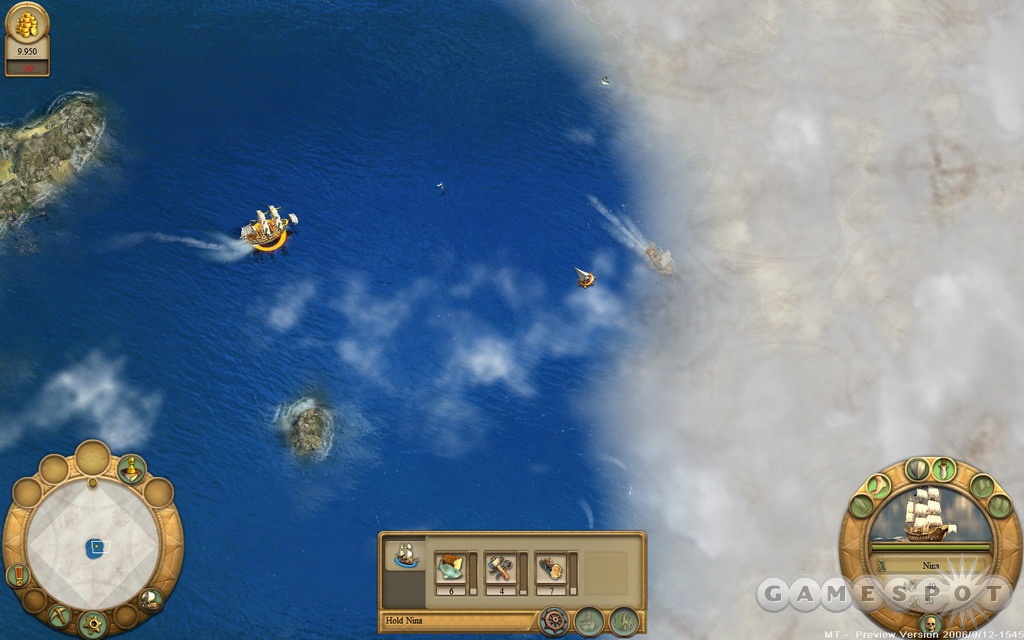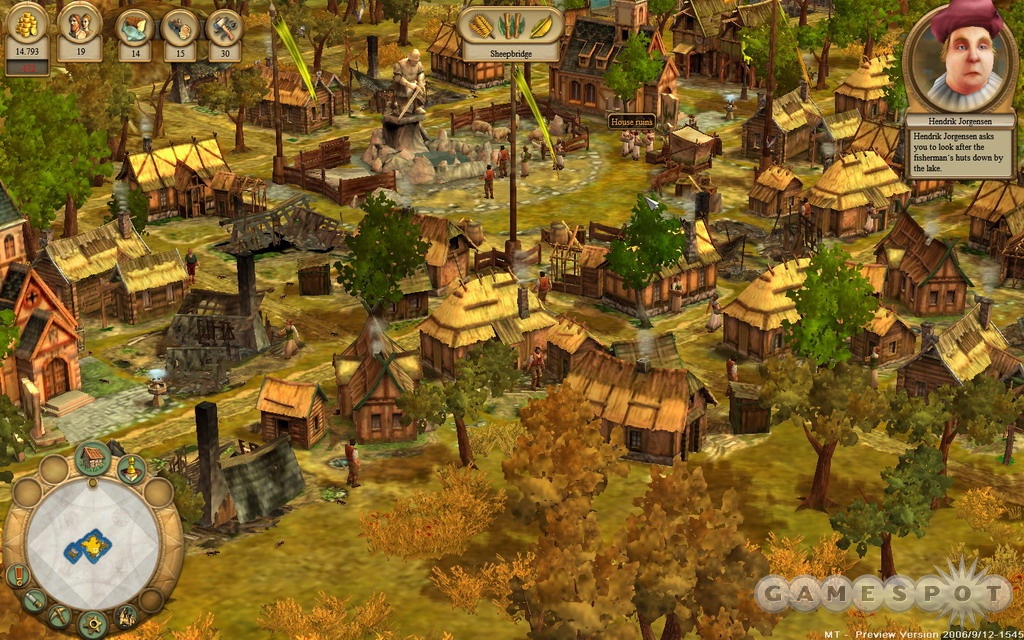1701 A.D. Hands-On
This colorful take on the age of colonization will let you try to establish a trading empire in a beautiful 3D world.
The year 1701 saw the pirate William "Captain" Kidd hanged and the city of Detroit founded. 1701 will also be the setting of the appropriately named 1701 A.D., which is actually the follow-up to the strategy games 1503 A.D. - The New World and 1602 A.D. Imagine taking SimCity and transplanting it to the New World during the colonial period, and you'll get a good idea of what sort of game 1701 is. However, 1701 also promises to be a huge revamp for the series, in terms of both visuals and gameplay.

1701 will actually play a bit more like a blend of SimCity and Civilization, as your goal isn't to just build a single successful colony, but a network of colonies across the New World in the continuous gameplay mode, which sets you up in a virtual New World where you compete against other powers. 1701 will ship with two other modes, including a playground that lets you play without having to compete against other powers, as well as a scenario mode in which you'll be tasked with accomplishing objectives in various missions.
The heart of the game promises to be continuous mode, because that pits you in a randomly generated world against a variety of other powers. You begin this mode with a sailing ship in the middle of the sea, and from there you must find inhabitable land and begin a colony by settling it and creating houses, industries, and the basic infrastructure for civilization. For instance, the colony needs food, which means you must establish fisherman's huts then link them to your warehouse with roads, or build hunting lodges to take advantage of the local wildlife, cattle farms and butcher shops to provide beef, or grain farms, mills, and bakeries.
Every aspect of everyday life must be accounted for, from the mundane to the exotic. Clothes require a sheep farm to generate wool, and a weaver's hut to turn the wool into cloth. Perfume requires special blossoms found on certain islands, or a greenhouse to grow them, as well as a whaler's hut for whale oil, and then an ambergris planet to turn them into perfume. (Whale oil can be used for lamp oil, as well.) There are production chains for cannons, horses, weapons, stones, wool, chocolate, tobacco, and more, and that means exploiting as many natural resources as possible. Some resources will be infinite, while others will require managing, or else resource depletion will set in.
The issue you'll encounter in the game is that no island will have every resource on it, which means that in order to gain access to other resources, you'll need to establish colonies on other islands and link them with trade routes. When competing against other powers, this eventually translates into friction, and perhaps war, so you'll be able to train armies by choosing between seven militia types as well as artillery, build defenses such as walls, and construct navies. (Warships are useful not only for defeating enemy fleets, but also for dispatching pesky pirates that infest the trading lanes between your islands.) You can also engage in diplomacy, trade with other factions, or dip into some skullduggery and sabotage them by using spies, poisoners, bombers, revolutionaries, and more.

As you progress, your colony or colonies will become richer and grander. Honored guests will reward you for your work by offering special upgrades that make your job easier, such as the popular beer wagon that dispenses free beer to the populace. You'll need to be on your toes, though, because natural disasters can strike, such as tornadic waterspouts that hit land and level buildings. In addition to the three single-player modes, 1701 will ship with a multiplayer component that will let up to four factions compete or cooperate with one another. The game can be set up so that the artificial intelligence fills in some of the slots, or real players can all participate.
1701 aims to be much more user friendly than its predecessors, thanks to the large amount of built-in documentation provided by an encyclopedia that explains every aspect of the game, from trade and diplomacy to battles. The attractive visuals should also help ease people into the game, as they represent a huge visual step forward for the series. The older 2D graphics engines seen in 1503 and 1602 have been replaced with a beautiful 3D engine that portrays the New World as an idyllic land, full of emerald-green islands to colonize and crystal-clear oceans to sail. There's more to the visuals than just eye candy, though, as the amount of detail is supposed to convey plenty of information about the state of your colony. Bustling activity in the streets lets you know instantly that things are going well, and decrepit buildings will tell you things that aren't so smashing. Put it all together, and 1701 looks to be a deep, colorful take on the age of colonization. The game is scheduled to ship in October.
Got a news tip or want to contact us directly? Email news@gamespot.com
Join the conversation